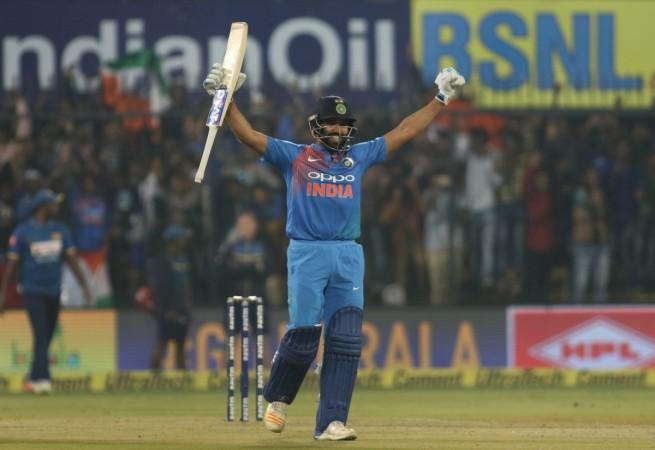
India's participation in the upcoming T20I tri-series -- Nidahas Trophy 2018 -- in Sri Lanka will not be affected by the recently-imposed state-wide emergency in the island nation, according to the Board of Control for Cricket in India (BCCI).
Sri Lanka declared a state of emergency for 10 days on Tuesday, March 6, following a series of communal clashes in the central city of Kandy, a government spokesperson said, as reported by Reuters. A local curfew had been imposed in the city on Monday, March 5 following the violence.
Concerns have been raised over Indian cricket team's safety as the Men in Blue are presently in the island nation for the tri-nation series, involving hosts Sri Lanka and Bangladesh. Rohit Sharma's men are set to play the tournament opener in Colombo on Tuesday.
"It [emergency] should not have any effect," a BCCI official told International Business Times, India.
The governing body of Indian cricket confirmed the same in a press release, adding that the situation is "completely normal" in Colombo where all the seven matches, including the final of the T20I series, is scheduled to be played.
Premadasa Stadium is all ready for the opening match of #NidahasTrophy2018. No issue with security at all.#SLvIND pic.twitter.com/3F1HEMDVPK
— Rajneesh Gupta (@rgcricket) March 6, 2018
"There have been reports of curfew and an emergency being called in Sri Lanka. The situation in picture is Kandy and not Colombo. This is to notify everyone that after talking to concerned security personnel (Ministerial security division – in charge of team security) we have understood that the situation is completely normal in Colombo. If at all there is any update on the same we shall notify," the BCCI said in its release.
Why Sri Lanka declared 10-day emergency
Groups of majority Sinhalese Buddhists and minority Muslims had clashed on Monday, leading to the curfew in Kandy. There had been instances of "riots and arson attacks" over the last few days in the city, Al Jazeera reports quoting police officials.
The unrest was triggered on Sunday after the death of a truck driver belonging to the Sinhalese community. He breathed his last days after an altercation with a group of four Muslims, according to the government.
The tension reached a tipping point when a Muslim-owned shop in Kandy was set ablaze on Monday. A body of a Muslim man was pulled out from the ashes of the structure on Tuesday morning.
The Sri Lankan government was forced to impose a state of emergency to "rein in the spread of communal violence". Elite police and troops were sent to Kandy on Monday to control the growing unrest.
Government spokesman Dayasiri Jayasekara has promised "tough action" against people instigating violence through social media, especially Facebook, according to Reuters.
The relationship between the two communities had worsened over the past year following accusations of Muslims forcing people to convert to Islam. Some Buddhists also protested against the presence of Muslim Rohingya asylum-seekers in the country.
Buddhist nationalists also accused Muslims of vandalizing Buddhist archeological sites in the country.
The two communities have been involved in numerous clashes over the last few years. In 2014, three people were killed and 78 were left injured in riots in Aluthgama, a southwestern coastal town in Sri Lanka. Bodu Bala Sena, a hardline Buddhist group had held an anti-Muslim march during which clashes erupted, leading to gas bomb hurling.






